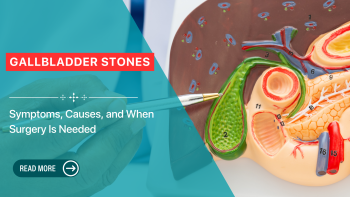Pelvic floor dysfunction (PFD) is a
common yet often misunderstood condition that can significantly impact a
person's quality of life. This blog aims to shed light on the causes, symptoms,
and treatment options for PFD, empowering readers with the knowledge to seek
appropriate care. We will also highlight how Link Hospital in Gwalior, recognized as the best multispecialty
hospital in the region, offers advanced treatment solutions for this condition.
What is
Pelvic Floor Dysfunction?
The pelvic floor is a
group of muscles and tissues located at the base of the abdomen, responsible
for supporting the pelvic organs, including the bladder, intestines, and, in
women, the uterus. Pelvic floor dysfunction occurs when these muscles are weakened,
overactive, or fail to function properly, leading to various urological and
gynaecological issues.
Types
of Pelvic Floor Dysfunction
There are two primary
types of pelvic floor dysfunction:
●
Hypertonic Pelvic Floor Dysfunction:
This occurs when the pelvic floor muscles are too tight or overactive, leading
to difficulty in relaxing them.
●
Hypotonic Pelvic Floor Dysfunction: This
occurs when the pelvic floor muscles are too weak or underactive, leading to a
lack of support for the pelvic organs.
Causes of
Pelvic Floor Dysfunction
1.
Childbirth
2.
Aging
3.
Chronic Straining
4.
Pelvic Surgery
5.
Obesity
6. Injury or Trauma
Symptoms of
Pelvic Floor Dysfunction
Pelvic floor dysfunction
can manifest in various ways, and the symptoms may vary depending on the type
of dysfunction. Common symptoms include:
Urinary
Symptoms
●
Difficulty starting urination
●
Frequent urination or urgency
●
Incomplete emptying of the
bladder
●
Urinary incontinence
Bowel
Symptoms
●
Constipation or straining
during bowel movements
●
Incomplete evacuation
●
Fecal incontinence
Pelvic
Pain
●
Chronic pain in the lower back,
pelvis, or genitals
●
Pain during sexual intercourse
●
Pressure or heaviness in the
pelvic region
Other
Symptoms
●
Difficulty with sexual function
●
Painful menstrual cycles in
women
●
Erectile dysfunction in men
Diagnosis of
Pelvic Floor Dysfunction
Diagnosing pelvic floor
dysfunction typically involves a comprehensive evaluation, including:
Medical
History and Physical Examination
A detailed medical history
and a physical examination help identify potential risk factors and symptoms
associated with PFD.
Pelvic
Floor Muscle Exam
A specialized examination
of the pelvic floor muscles assesses their strength, coordination, and ability
to contract and relax.
Imaging
Tests
Advanced imaging
techniques like MRI or ultrasound may be used to visualize the pelvic floor
muscles and identify abnormalities.
Urodynamic
Testing
This test evaluates the
function of the bladder and urethra, providing valuable insights into urinary
symptoms related to PFD.
Treatment
Options for Pelvic Floor Dysfunction
1.
Physical Therapy
2. Medications
3.
Surgery
4.
Lifestyle Modifications
Why Choose
Link Hospital for Pelvic Floor Dysfunction Treatment?
Link Hospital in Gwalior
is renowned as the best multispecialty hospital in the region, offering
comprehensive care for pelvic floor dysfunction. Here's why:
Advanced
Technology and Expertise
Link Hospital is equipped
with state-of-the-art diagnostic tools and advanced treatment options,
including robotic-assisted surgery and specialized pelvic floor rehabilitation
programs.
Patient-Centered Care
At Link Hospital, patients
receive compassionate care in a supportive environment, ensuring that their
journey to recovery is as smooth as possible.
Conclusion
Pelvic floor dysfunction can be a challenging condition, but with the right care and treatment, individuals can achieve significant improvement in their symptoms and quality of life. If you or someone you know is experiencing symptoms of pelvic floor dysfunction, don’t hesitate to seek expert care at Link Hospital in Gwalior, where advanced treatment options and a compassionate team of specialists are dedicated to helping you regain control and comfort in your life.











